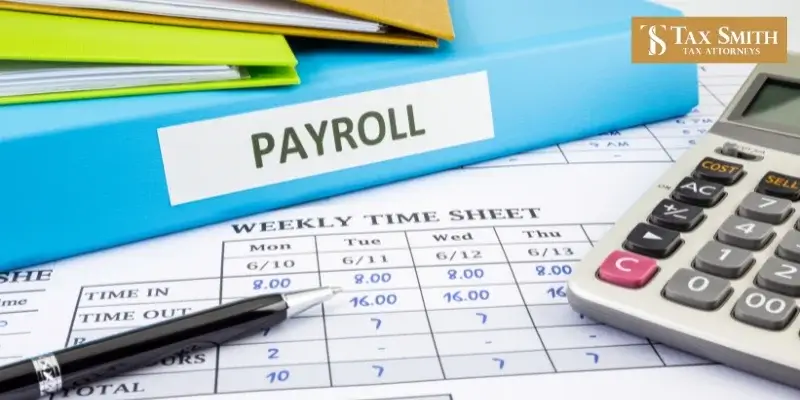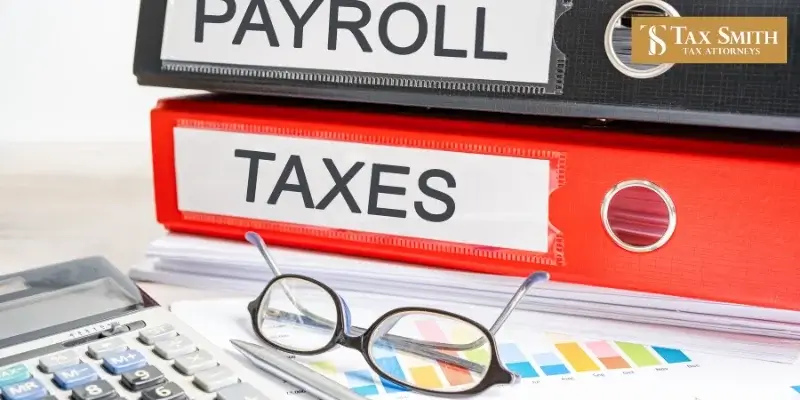An audit as a business or employer can be stressful, especially when it is conducted by the Internal Revenue Service (IRS). It’s important to know what to do when facing a payroll tax audit, how to protect your rights, and what options you have if errors are found.
What Is a Payroll Tax Audit?
A payroll tax audit is a review by a tax agency of your tax information and documents to ensure your payroll tax deposits comply with regulations. The IRS reviews your federal taxes. There was a total of 8,279 closed audits of corporation income tax returns by the IRS in 2024. Audits may look at tax returns, deposit information, and other tax forms.
What Causes an IRS Audit of Your Payroll Taxes?
The IRS conducts audits of taxpayer information for three main reasons. It can be nerve-wracking to receive notice of an audit, but it doesn’t always mean that the IRS thinks you have done something wrong or illegal. The IRS conducts an audit because of:
- Random selection, when the IRS selects many tax returns at random to assess their accuracy
- Administrative issues, where the agency’s system detects discrepancies in your information
- Related audits, where a person or business you have transactions with was selected for an audit for either of the above reasons

When you are picked for a for-cause audit, it may be for errors such as late filings, late deposits, math errors, certain credit claims, or other inconsistencies.
What Should You Do When You Receive Notice of a Payroll Tax Audit?
When you receive a notice for an IRS payroll audit, it will have a list of the information you need to gather. Audits can differ in scope and look at specific or broader payroll information.
After reviewing your notice, it is a good idea to contact a payroll tax attorney. They can help you understand the notice, the information you need to secure, and help you prepare for the audit.
Your payroll tax lawyer represents your interests from the beginning to the end of the process. They can assess if there are errors that the IRS may find and help you address them properly. Your attorney also protects your rights during the audit itself and helps you take action after a decision is made.
What Should You Expect From the Audit Process?
An IRS audit can be conducted through the mail or in person. In-person audits may be handled through a nearby Taxpayer Assistance Center Office or in the field at your business. Depending on the audit type, you may be sending copies of important documents in the mail or preparing them to present to the agent in person. You may have to produce documents like:
- Tax returns
- Bank account information
- Business income
- Payroll records and deductions
- Deposit information
- Paystubs
- Receipts of purchase
- Tickets for business trips
- Canceled checks
- Bills paid
Your notice of the audit will list the scope of the audit and documents needed, but the agent may need information beyond that in some cases. You should provide the requested information as soon as possible. An IRS agent is focused on the IRS’s interests. When you hire an attorney, they look out for your interests and those of your business.
What Are the Outcomes of Payroll Audits?
After the IRS agent has completed their audit of your payroll information, they either find a discrepancy or they do not. An audit can be resolved in the following ways:
- No issue was found, so no changes to your payroll tax information or tax liability need to be made.
- An issue, discrepancy, or error was found, and you agree to the changes to your tax information or liability.
- An issue was found, and you do not agree with the changes made.
Eight hundred ninety-seven of the corporate income audit closures in 2024 involved disagreed-upon additional taxes. If you do not agree to the changes made, then there are other steps to take, such as filing an appeal. With the help of an attorney, it is easier to assess whether the change is fair or not, and whether it is beneficial to file an appeal and challenge the new tax assessment. If you do make an appeal, it must be made within a short timeframe.

FAQs About What to Do When Facing a Payroll Tax Audit
How Do You Handle Payroll Tax Audits?
If you have received notice of a payroll tax audit, it is important that you review the notice to determine the type and scope of the audit. Then, gather the appropriate documentation and important records. You should also reach out to a payroll tax lawyer. With legal guidance, it is much easier to understand what is expected of you, your rights, and the information you need to gather. An attorney can also review your information prior to an audit.
What Happens if You Fail a Payroll Tax Audit?
If you fail a payroll tax audit, you will likely have to pay more in taxes. There are several minor errors the IRS may have found, such as math errors or inaccurate information. These issues can result in fines or mean that you should have paid more in your payroll tax deposit. If you agree with the changes the IRS makes to your information and tax payment, then you simply pay the greater amount. If you disagree, you can appeal.
What’s the Worst That Can Come From a Payroll Tax Audit?
The worst thing that can happen if you fail a payroll tax audit is the IRS accusing you of tax fraud or tax evasion. This will only occur if the agency believes that you intentionally avoided paying your payroll taxes or purposefully lied to avoid paying fully. When you hire a payroll tax attorney, they can help you protect your reputation and finances.
What Is a Payroll Tax Audit?
A payroll tax audit is an audit conducted by either the IRS or your state’s tax agency of your business’s payroll information and tax documents.
Payroll taxes include several forms of taxes, like personal and corporate income taxes, and unemployment taxes. The IRS conducts audits to ensure you are complying with the federal tax laws and your information matches what you claimed on tax forms.
Hire a Payroll Tax Attorney
At TaxSmith, LLC, we have many years of tax law experience. Let us help you with your payroll taxes and IRS audit. Contact our firm.








